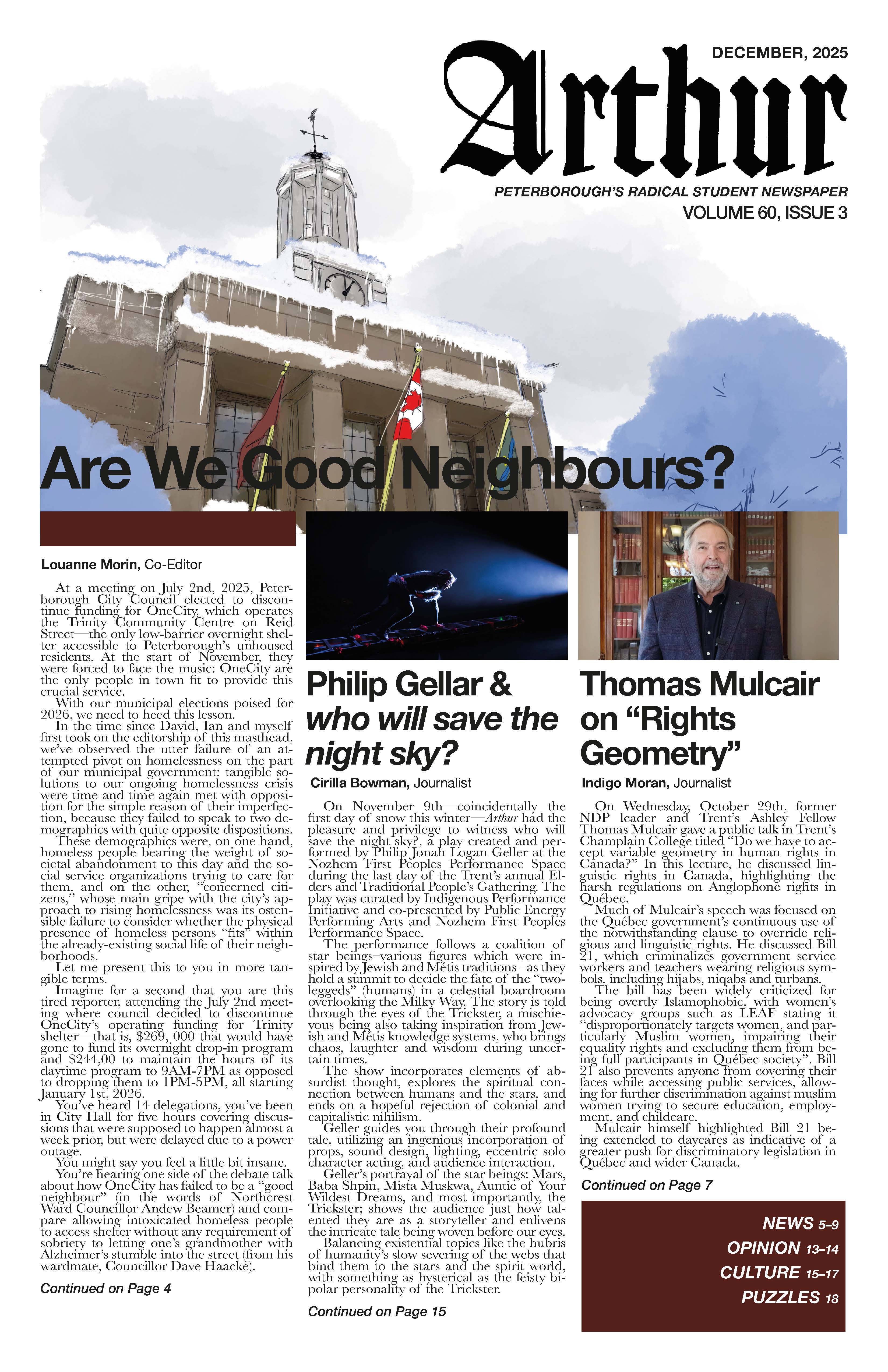[content warning: Although it contains no overt or graphic details, this piece discusses abortion and its moral condemnation.]
Brazil is a second-year white settler woman studying philosophy and environmental science. She is a pro-choice feminist.
Saturday March 10, the philosophy department held their annual student symposium. This is an event at which philosophy students from all years are given the opportunity to submit and present their work as a talk, receiving comments and criticism to strengthen their argumentative practice. One talk from this years’ symposium raised some important questions to consider, especially about the purpose of philosophy as a whole. Based on the title of the talk -- "Abortion is Always Immoral" -- I probably don’t need to explain why this particular talk garnered chatter, both in the department and online. The fact that there were threats to disrupt the talk is not something I take lightly. I have no intention of starting an argument here with, or about, the author of the talk, because I don’t think it’s worth it. I didn’t speak up on March 10 about my concerns, so now I want to speak more broadly, and talk about philosophy.
Sitting in the Trent Student Center, watching a classmate handle the complex subject of abortion was emotional and mind bending for me, because of the context of the room and the larger implications of this kind of work. To me, this topic was so obviously more slippery than a precise logical philosophical handling could grasp. To me, the moment the speaker opened his mouth he had lost some aspect of the argument.
This talk led me to wonder: should we be able to tell men they can’t talk about abortion, just on the premise that they can’t experience it? I think that in philosophy we can’t make this limitation. To my understanding, philosophers first acknowledge all that they do not know and attempt to work from what they do. Traditionally, philosophy is focused on the pursuit of objectivity; reason can lead to truth. So, just as the living have to try and talk about death, men can try and talk about the morality of abortion.
I think, though, that when we talk about death, philosophers recognize that they cannot ever truly know death (when alive), and there was no acknowledgement of that here. I did not feel like there was an understanding, from the speaker or in the room, that this topic was being handled from the position of a young man. This is a topic with serious implications. The conclusion of which was a condemnation handed out by someone who could never themselves be condemned. I don’t want to argue that we should bar big topics in undergraduate philosophy. Young people are crazy radical and that is a good thing. It is important to push barriers and stick to our guns and whatnot, and maybe even say things we do not understand. But the sober, careful tone of this philosophical inquiry didn’t feel like that.
This talk had philosophical merit. It may have proved (so much that philosophy can prove anything) that abortion is immoral within a strict definition of morality, abortion, and life, and with strict definition of relationship between carrying body, womb and fetus (these were perhaps dismantled by some objections in the room that day). The talk was logical, employing current ethical work and interesting use of texts with nearly airtight language and argumentation, but it was limited. What does a talk like this even mean on a broader scale? Nothing. Abortion is legal in Canada. When you place this kind of argument into a sociological, medical, economic, ethical or basically any other context, the terms become muddied and the strict ethical lines are no longer conclusive, and women may remain un-condemned.
This talk made me angry. This talk made me worry that philosophy isn’t what I thought it was because it allowed for such limited discourse without objection or pushback. I spent the next week having extensive conversations with friends, classmates, and profs, trying to understand what happened. And I am not abandoning philosophy. I don’t think philosophy has to be this way. From what I understand now, philosophy is enriched and more powerful when the speaker positions themselves and their topic within the broader social context, especially when taking on ethical topics. This talk challenged the way I think, and hold my beliefs, and I feel more strongly now that what I want to do in philosophy is hold my subjectivity in clear view. I want to try and get to wisdom through philosophy, even about morally challenging topics, by taking responsibility for myself and my privilege, not in spite of it.


.png)


.jpg)


.jpeg)



.jpg)


.jpg)



.jpg)




.jpg)


.png)